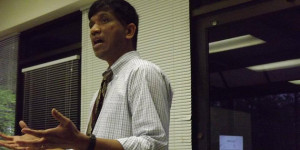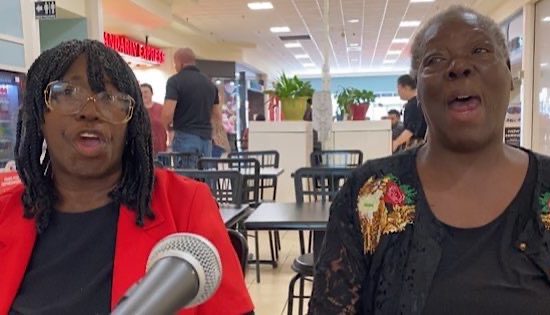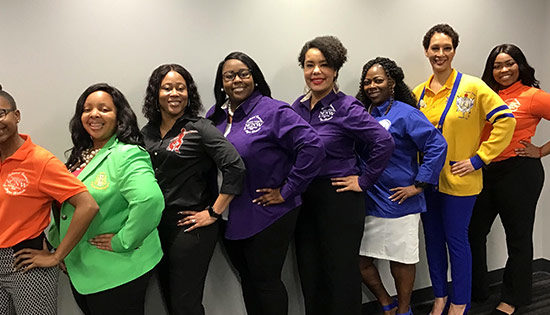
Note: This week’s editorial focuses on the Democratic nominee, Bikram Mohanty, in the race for the 8th District State Senate seat being vacated by Sen. Tim Golden (R-Valdosta). The Republican nominee will be covered in a forthcoming editorial. Both editorials will present a portrait and critique of the candidate and do not represent an endorsement of any candidate or campaign by the author, Valdosta Today.com, or its parent company.
EDITORIAL—Bikram Mohanty is the new face of state politics. Mohanty’s story is one that is uniquely American. Like countless other Indian-Americans, particularly those who immigrated to South Georgia, Mohanty came to this country seeking a better life for himself and his family. In my forty-five minute interview with the Democratic nominee for State Senate District 8, one thing remains on the forefront of my mind. Plainly, when I think of Mohanty, I think of a candidate who cares. He cares deeply about his state and nation; about his family, friends, and neighbors; and about the future of the place which he dearly and proudly calls his home.
Mohanty is a trained occupational therapist. He’s a businessman, the proprietor of his own practice, Innovative Rehab Solutions, which he built from the ground up. Mohanty articulated that he came to this country with a meager $50 in his pocket. Mohanty’s hard work, resiliency, and perseverance reflect the bedrock ideals of America. A man born in a far flung place, immigrating with quite literally the clothes on his back, only to build a name and life for himself and his family; Mohanty’s story is one which typifies the American experience.
To Mohanty, politics is not an end in itself, but the means to work together to strengthen our nation, our state, and our communities. Bikram Mohanty is called to politics not because he seeks to merely elevate his station, but to genuinely work on behalf of the people. Surely, he would not be the first politician to make such claim, though you can see it in his eye, in the inflexion of his voice—make no mistake: his sincerity is as unwavering as his commitment to the community he proudly serves.
Mohanty’s ascension to be his party’s nominee for the State Senate is indicative of the underpinning changes of recent decades in the Peach State, generally. Georgia’s demographics are changing. Between 2000 and 2010, the Peach State’s aggregate white population declined 7 percent. Concomitantly, Georgia is becoming more urban and proportionally less rural. It is highly likely that in the coming decades, Georgia will once again become more amiable towards Democratic candidates in Dixie. Likely, it will be a polity embracing the more mainstream “New Democrat Coalition” neo-liberal ideology embodied in Arkansas’s Bill Clinton, and repudiating the conservative pro-segregation Democratic strain personified in the Richard Russell archetype of yesteryear.
To that end, Mohanty and those like him should be well positioned for future Democratic growth in the Peach State. Mohanty’s top legislative priority, if elected, can be summarized in a word: education. Bikram posits that if our state and nation are to be the leaders of this new century, education is not merely an expense for state government, but the critical investment in future leaders and thinkers. Among his most notable proposals, Mohanty wants to bolster the state’s lottery system to generate more revenue for funding state education.
Fundamentally, Bikram perceives politics as the vehicle to improve the lives of those in the community. Politics, to Bikram, is not an attempt at personal gain, prestige, or to exact a certain benefit—politics is the means to do what is best, and what is right for his constituency. Twentieth century American political scientist Daniel Elazar identified three predominant geographic “political cultures” in the United States. The American South is dominated by a traditionalistic political culture. Traditionalism is characterized by aristocratic legitimacy. An emphasis placed on an incessant and utilitarian need to preserve a system for the legitimation of a particular stratum over other, subordinate classes in society. In short, traditionalism is a system of politics focused around maintenance of the status quo.
To apply Elazar’s political cultures to how Mohanty perceives the role of the legislator, traditionalism would be the furthest and least apt approximation. More common in the upper-Midwest and the northern most reaches of New England, Elazar’s moralistic political culture is most akin to Mohanty’s personal philosophy. In the moralistic school, government is seen as a “commonwealth.” The process of governing involves the community converging to mediate disputes, settle differences, and work for the betterment of one another. Politics is among the noblest and most salient pursuits of mankind in search of what the moralist’s perceive as a generally ‘good’ society. Central to moralistic political cultures is the rejection of individual gain in politicking in order to maximize a communal benefit. This is the very essence that drives Bikram to serve his community. It is this philosophy, however, that flies in the face of the history of Georgia state politics. A system marked by the corrupting influences of protracted one-party dominance, coupled with the prototypical ‘bubbas’ entrenched in the “good ol’ boy system” to further the solitary interests of a small “redneck aristocracy.”
A twentieth century political scientist equal to the stature of Elazar is found in Dick Fenno. Fenno spent his career observing legislators in their districts. In his seminal work, Home Style: House Members in Their Districts, Fenno contended that little research has been conducted on the saliency of federal legislator’s travels to their home districts. Despite the significant amount of time they spend at home, or “outside the beltway,” prior to Fenno, little thought had been exerted on how a legislator’s perceptions can be changed or influenced by the “folks back home.” To Mohanty, it is his deep fealty to his constituency which may prove to be fatal to his electoral prospects.
In a successive work to Home Style, Senators on the Campaign Trail: The Politics of Representation, Fenno employs case studies of U.S. Senators campaigning in order to evaluate a legislator’s perceptions while back home seeking re-election. Fenno speaks of what he perceives as “John Glenn syndrome.” John Glenn served as a Democratic U.S. Senator from Ohio between 1974 and 1999. Glenn is likely more famous as being the first American to orbit the Earth in 1962 as part of the original NASA Mercury Seven. Fenno posited that Glenn’s presidential ambitions in 1984 were thwarted by his image as a hero and “man of the people.” Important to Fenno’s research is attempting to understand how legislator’s perceive their election or reelection constituency—those groups who are likely to turn out to the ballot box in troves to support a particular candidate.
When Fenno asked Glenn who supports him, as an almost hopeless idealist, Glenn responded “the people do.” Glenn entered politics as a natural succession to his protracted record of public service. He never sought to muddle himself or his hero’s image in order to win a political contest. Always, Glenn believed, naively, that the people would naturally support him—or, possibly more correctly, as many people as possible.
Based on my interview with Mohanty, it is quite possible he suffers from an offshoot of John Glenn syndrome. His reply to my question regarding his election constituency was virtually indiscernible from Glenn’s to Fenno. Mohanty wants to serve the people deeply, in that he believes “the people” will respond to him accordingly. Sadly, the cold realities of politics is that in order to win a candidate must be ready to “divide and conquer”—to use the well understood colloquialism. The divisive nature of politics, particularly with lower information state and local elections, requires that a candidate must be able to employ his limited campaign monies and resources to effectively get out the vote of those who are most likely to support him. With limited time and resources, if a candidate is to attempt to build a large hegemonic supporting coalition, then that candidate will lose, regardless of how altruistic one’s intentions may be.
In short, Mohanty is an idealist. He wants to represent his constituency well, and ensure that each resident of Georgia’s 8th State Senate District get a fair deal. In some regards, his idealism may hold him back, though on the whole it is central to his governing philosophy. Mohanty is a moderate Democrat, willing to work with Republicans in the General Assembly and in the governor’s mansion. Further, with the real possibility of the emergence of a Democratic governor in Jason Carter, Mohanty could serve as a crucial bridge builder between a Republican legislature and a Democratic governor. As previously noted, Mohanty’s top legislative priority is reforming the state’s education. Bikram expounded on the possibility of furthering the mission of Valdosta State University in better serving and educating South Georgians. Further, Mohanty stands against the recent extreme gun legislation passed by the Georgia General Assembly. As enacted, Georgia’s new gun law allows for the concealed carry of firearms on college campuses, in bars, and churches. Mohanty isn’t alone; a recent Atlanta Journal Constitution poll showed that 72 percent of Georgians opposed allowing firearms in places of worship. In an open letter from the Board of Regents of the University System of Georgia and every USG institution president, including VSU president, Bill McKinney, to the Georgia General Assembly, the University System also expressed deep concerns regarding legislation permitting concealed weapons in the learning environment. In essence, Mohanty wants responsible gun ownership, and while he is a staunch advocate of the rights of gun owners and sportsmen, he cannot stand for weapons in places of learning and worship, above all.
Mohanty represents the future of state politics; a middle-of-the-road Democrat who eagerly wants to serve and learn from his constituents. A man who believes that our state’s growth depends on innovation, entrepreneurship, and hard work—but to Mohanty, these tenants are not easily actualized devoid a system of education which can meet this century’s workforce challenges. Mohanty typifies the American story, born to a place far from the shores of liberty, coming to America with little to his name, starting a business to create a name for himself and his family—becoming a pillar of the community. Further, his story is even more laudable in his efforts to seek to further the same conditions which lead to his success for those in his community via public service. When I think of Mohanty, as noted prior, I think of a candidate who cares about his community. If the commendable and visible level of care he provides his patients is any indicator of his character, Mohanty will be a tireless advocate for the 8th district at the statehouse in Atlanta. A vote for Mohanty will be a vote for the future of our state and an investment in careful and considerate leadership for our region.











